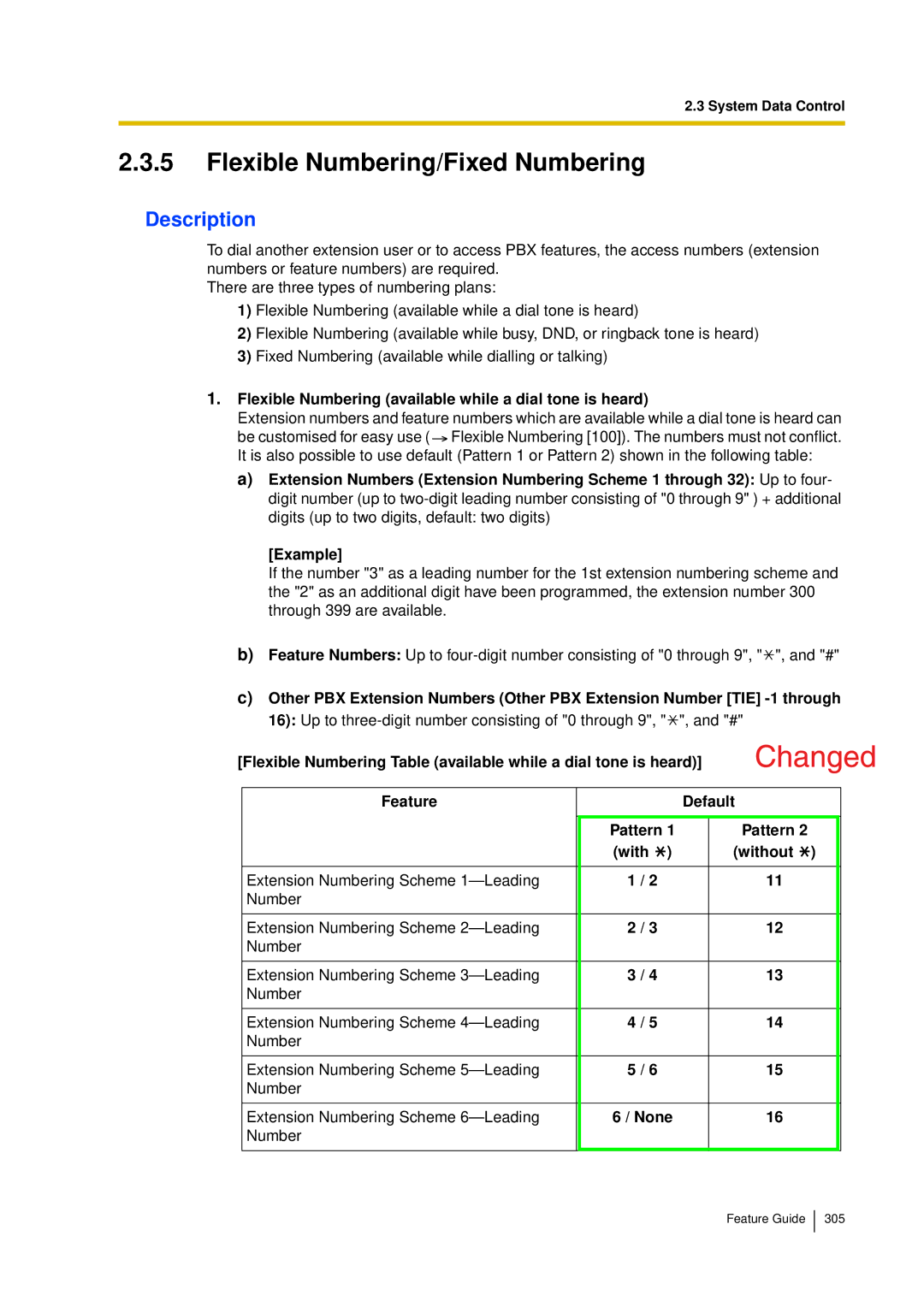
2.3 System Data Control
2.3.5Flexible Numbering/Fixed Numbering
Description
To dial another extension user or to access PBX features, the access numbers (extension numbers or feature numbers) are required.
There are three types of numbering plans:
1)Flexible Numbering (available while a dial tone is heard)
2)Flexible Numbering (available while busy, DND, or ringback tone is heard)
3)Fixed Numbering (available while dialling or talking)
1.Flexible Numbering (available while a dial tone is heard)
Extension numbers and feature numbers which are available while a dial tone is heard can be customised for easy use ( ![]() Flexible Numbering [100]). The numbers must not conflict. It is also possible to use default (Pattern 1 or Pattern 2) shown in the following table:
Flexible Numbering [100]). The numbers must not conflict. It is also possible to use default (Pattern 1 or Pattern 2) shown in the following table:
a)Extension Numbers (Extension Numbering Scheme 1 through 32): Up to four- digit number (up to
[Example]
If the number "3" as a leading number for the 1st extension numbering scheme and the "2" as an additional digit have been programmed, the extension number 300 through 399 are available.
b)Feature Numbers: Up to ![]() ", and "#"
", and "#"
c)Other PBX Extension Numbers (Other PBX Extension Number [TIE] ![]() ", and "#"
", and "#"
[Flexible Numbering Table (available while a dial tone is heard)]
Feature |
| Default | |
|
|
|
|
| Pattern 1 |
| Pattern 2 |
| (with ) |
| (without ) |
|
|
|
|
Extension Numbering Scheme | 1 / 2 |
| 11 |
Number |
|
|
|
|
|
|
|
Extension Numbering Scheme | 2 / 3 |
| 12 |
Number |
|
|
|
|
|
|
|
Extension Numbering Scheme | 3 / 4 |
| 13 |
Number |
|
|
|
|
|
|
|
Extension Numbering Scheme | 4 / 5 |
| 14 |
Number |
|
|
|
|
|
|
|
Extension Numbering Scheme | 5 / 6 |
| 15 |
Number |
|
|
|
|
|
|
|
Extension Numbering Scheme | 6 / None |
| 16 |
Number |
|
|
|
|
|
|
|
Feature Guide
305
